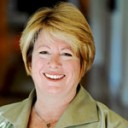‘It’s important for us all to become aware of how we listen, what we listen to and how this affects what we do.’ – Theo Sowa, Co-Chair, The Equality Fund
Philanthropy is inherently shaped – not only by strategy and performance metrics – but by the quality of our relationships. That became ever so clear to me as I listened to the three keynote speakers during the virtual Innovations in International Philanthropy Symposium in September.[i] Their central questions will long reverberate within me:
- To whom should we listen?
- How should we listen?
- How should we share what we’ve heard?
To whom should we listen?
Theo Sowa urged us in her melodic voice to, Reach beyond the boxes that people are constantly trying to put you into.’ In other words, ‘Don’t just listen to those who look like yourselves — your inner (donor) circle.’ Listen to those on the front lines with lived experience. Give them the power to decide how to invest the funds you provide.
Likewise, Malala Yousafzi of the Malala Fund said, ‘Listen to the Champions, those leaders who have come from the communities and are speaking out… Listen to the girls. They already know what to do.’
I found this a refreshing reframing of the philanthropic missive: ‘Listen to the proximal leaders.’ Still, the deeper insight I gleaned from the keynote speakers was HOW to listen.
How should we listen?
Keynote speaker, Kumi Nadoo, a South-African-born human rights and climate activist, bemoaned that we in philanthropy often ‘listen for what people don’t have. This will only disempower them further.’ Instead, he exhorted, we should listen for their strengths and assets, their power, dignity, and successes. Reflect them back and build upon them.
To illustrate this lesson, Sowa described a delegation of philanthropists and journalists who visited a group of women in the Democratic Republic of the Congo. Gently guided by the Liberian human rights activist, Leymah Gwobee, several of the women spoke of the atrocities they had suffered, and of how other women had helped them recover. Unfortunately, the visitors craved more details about the abuse. Gwobee pointed out that the outsiders were listening for the women’s pain rather than their strength; emphasising their victimhood versus their sisterhood.
Sowa’s searing admonition was: ‘If you don’t listen for leadership and sustainability among the people you seek to serve, your giving may undermine the very things you intend to achieve with your philanthropy.’ Whom we choose to listen to, and how we listen matters. ‘How this (listening) affects our actions matters even more.
How should we share what we’ve heard?
I sometimes become overwhelmed by all the challenges in the world. So, I resonated with Yousafzi’s rhetorical question, ‘What can I do as one individual?’ She urged us to not isolate ourselves, but to draw others in by asking how they are personally affected by current issues. No matter where we are — whether in our families, neighborhoods, or workplaces – we can simply ask, ‘How are you impacted by what is happening around us?’
Nadoo also stressed that we need to share what we have heard while inspiring the urgency to act. At the same time, we must speak in a way that empowers rather than demobilises people. We must shift norms and beliefs through positive messaging.
He underscored this point with a story about a woman who heard him give an alarming speech about the climate crisis. Afterwards, she asked him to recall Martin Luther King, Jr.’s speech, ‘I Have a Dream.’ She pointed out that Nadoo’s speech should have been entitled, ‘I Have a Nightmare!’ Which message is more motivating? Which tone will help us shift entrenched social norms so we can achieve global change?
Implications for Global Philanthropy
Imagine the global impact we could make if every one of us, like Yousafzi, asked people in our networks, ‘How are you impacted by what is happening around us?’ If we shared with them how we are personally addressing the existential crises of our lives — and inspired them to join us — we would have the power to increase global philanthropy far beyond the meager 5c on the dollar for every donation from the US.
At New England International Donors (soon to become NEID Global) and The Philanthropic Initiative, we inspire donors, grantmakers and investors to listen mindfully to those closest to the problems. We give them opportunities to share their convictions that global change can be achieved through bold, nimble, and collaborative private philanthropy and impact investing. How we positively convey our learnings, beliefs and actions may determine our very survival in this world.
Karen Keating Ansara, Founder and Board Chair, New England International Donors






Comments (1)